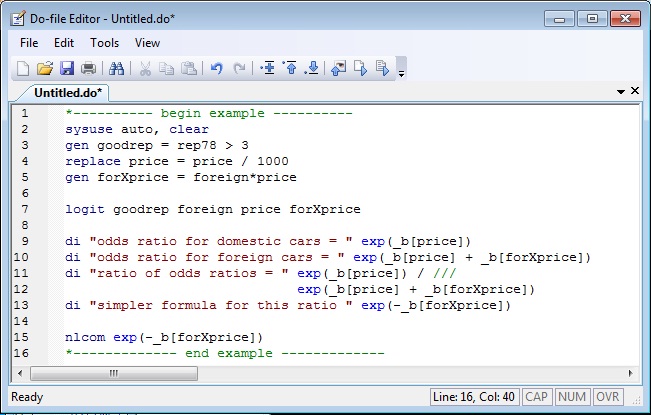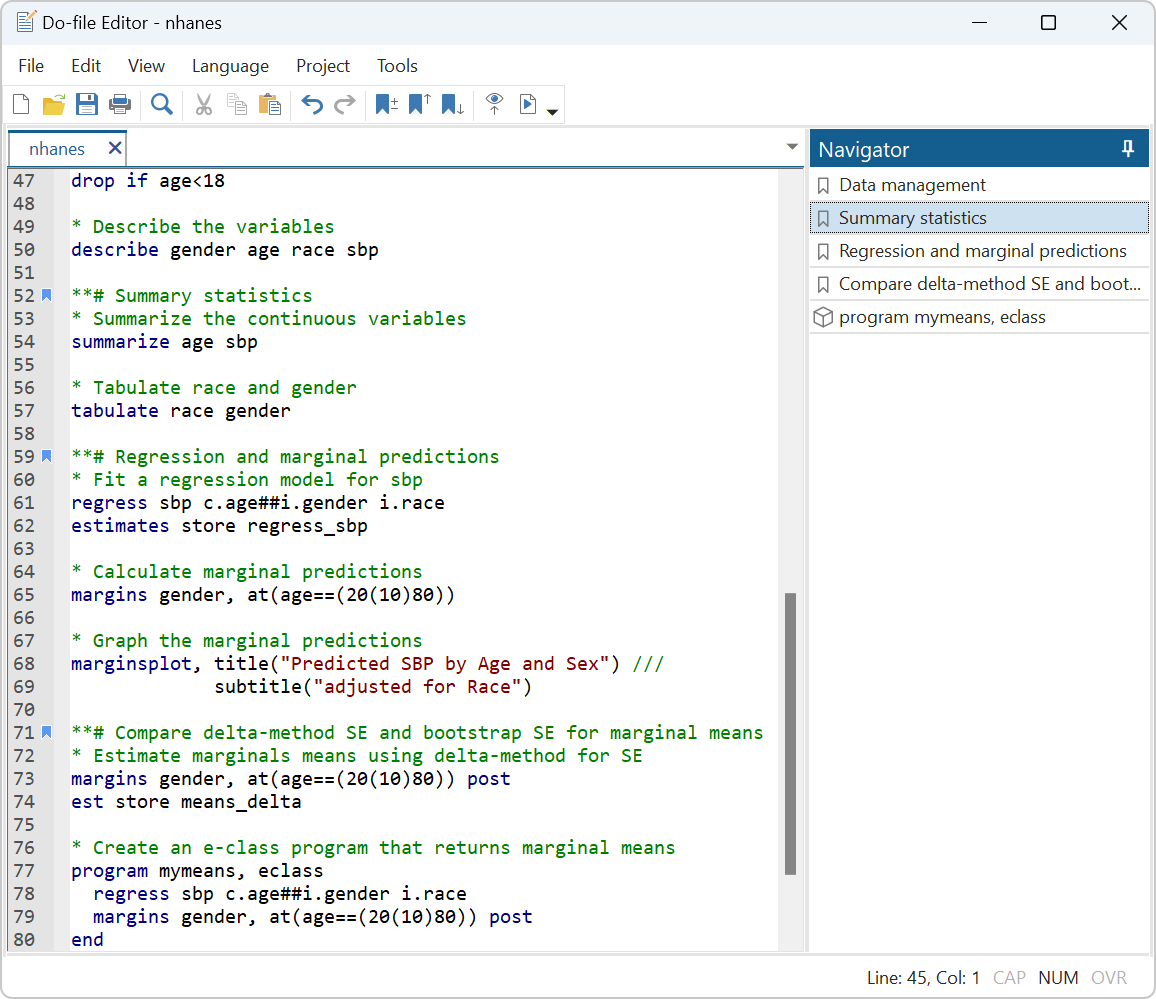
Graph export "./Graphs/RollingBond.png", as(png) replace When saving/opening/deleting files (data, graphs, logs, etc.) explicitly tell Stata to use the relative paths: use "./SourceData", clear You don't need to worry if a directory exists: -cap- alleviates this issue. There you can store your temporary datasets, place graphs, etc. So you create "Temp" and "Graphs" folders inside the working directory. Where "." means the current working directory. Keep the same folder structure by creating directories within Stata: cap mkdir "./Temp" Check it via this code: global cdpath = "`c(pwd)'" When you combine "\" with global/local variables, Stata treats this as a combination with an escape symbol (to be able to use symbols like ` and $ in strings), so using "\" may corrupt your browsing strategy. Hint: as Nick Cox mentioned, use "/" instead of "\".
DO FILE STATA CODE
After -cd-ing to that directory you can save the path as a global variable and use it further in the code (if that is necessary): global cdpath = "`c(pwd)'"ĭi `""' //optional: click to open the folder in the explorer cap- evades possible errors if a directory does not exist, so every user will get to his own working directory of the project. cd to your working directory with a hint -cap- and keep the -cd- code in the beginning of a do-file: cap cd "W:\Bonds\" //Collaborator 1Ĭap cd "C:\Users\StataUser\Desktop\ProjectForBonds\" //Collaborator 2Ĭap cd "/media/DATA/work_materials/Dropbox/MyProjects/Bonds/" //Collaborator 3: Linux machineĬap cd "D:/work_materials/Dropbox/MyProjects/Bonds/" //Collaborator 3: PCĬap cd "E:/Projects/Dropbox/MyProjects/Bonds/" //Collaborator 3: Laptop It does not require additional modules and depends only on how you organize your materials in folders.
DO FILE STATA WINDOWS
answers, I propose my humble solution to a collaborative work in Stata (that works on different machines both on Windows and Linux). In addition to those and Nick Cox and Fr. You can find plenty of useful tips here (just a brief overview, more discussion on the Statalist): The discussion around this topic has been raised many times on the Statalist. Several years has passed but the answer is still the same: there is no direct way to determine the location of a current do-file. But if you are using files from different places you have to tell Stata somehow where they are. The second seems closest to your preference for not wiring in particular locations. Also, if there are embedded spaces, bind the whole thing in double quotes.

Notes: It's best to use forward slashes, even under Windows Stata will translate. Use global macros within your main do-file for locations and then re-define them within a master do-file which you run first. Make sure your references to locations generally and files in particular are relative within the do-file and run the do-file from the parent directory. (Any other arguments would be local macros 2, 3, etc.) the thing passed is passed as local macro 1. Inside the do-file you can grab the argument as local myfolder "`1'" Launches the file mydo.do and passes the argument of a particular directory to the do-file. For example, do mydo d:/myproject/data1812 Passing the name of a directory to a do-file as an argument. It does not store any personal data.You can do various things in this territory, including

The cookie is set by the GDPR Cookie Consent plugin and is used to store whether or not user has consented to the use of cookies. The cookie is used to store the user consent for the cookies in the category "Performance". This cookie is set by GDPR Cookie Consent plugin. The cookie is used to store the user consent for the cookies in the category "Other. The cookies is used to store the user consent for the cookies in the category "Necessary".

The cookie is set by GDPR cookie consent to record the user consent for the cookies in the category "Functional". The cookie is used to store the user consent for the cookies in the category "Analytics". These cookies ensure basic functionalities and security features of the website, anonymously.

Necessary cookies are absolutely essential for the website to function properly.


 0 kommentar(er)
0 kommentar(er)
